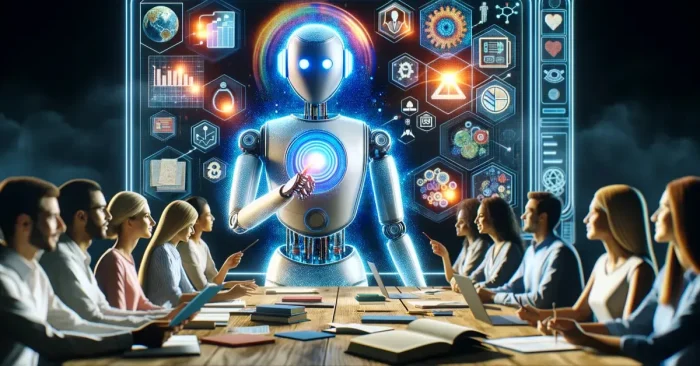AI Coaching Tools Explained
AI coaching tools are digital platforms powered by artificial intelligence that simulate the role of a coach. Instead of relying solely on human coaches, these tools use algorithms, natural language processing, and data analysis to provide personalized feedback, guidance, and goal-tracking. They can work independently or alongside human coaching, helping users reflect, plan, and improve performance in real-time.
How Do They Work?
These tools collect data from user interactions, performance metrics, and behavioral patterns. The AI then analyzes the information to offer tailored insights. For example, an AI career coach might analyze a user’s skills and suggest development paths, while an executive coaching tool could provide strategies for improving leadership communication.
Types of AI Coaching Tools
There are several categories of AI coaching solutions available today:
- Career Coaching Tools: Focused on professional growth, skill assessment, and career planning.
- Executive Coaching Platforms: Designed for managers and leaders to strengthen decision-making and communication skills.
- Wellness and Life Coaching Apps: Helping users balance personal and professional life through mindset and lifestyle guidance.
- Team Coaching Tools: Supporting collaboration, engagement, and performance improvement in organizational settings.
Key Benefits of AI Coaching Tools
Organizations and individuals adopt these tools because they offer clear advantages:
- Scalability: AI coaches can support thousands of users simultaneously.
- Accessibility: Available 24/7, providing support whenever needed.
- Personalization: Tailored recommendations based on user behavior and goals.
- Data-Driven Insights: Evidence-based feedback, tracking measurable growth over time.
- Cost Efficiency: More affordable than traditional coaching programs while delivering consistent quality.
Applications and Practical Use of AI Coaching Tools
For Individual Growth
Individuals use AI coaching solutions to set and achieve personal goals. These can range from building communication skills, managing time effectively, or preparing for career changes. By analyzing user input, the AI delivers actionable steps and motivation to stay on track.
For Business and Leadership Development
In corporate environments, AI-powered coaching plays a crucial role in leadership development. Managers benefit from tools that help them analyze their leadership style, identify improvement areas, and receive actionable coaching tips tailored to their team’s needs. This leads to better communication, stronger team engagement, and improved organizational culture.
For Employee Engagement
AI coaching tools are increasingly used to enhance employee engagement. They provide employees with access to professional development resources and personalized growth pathways, boosting satisfaction and retention. HR departments use these tools to monitor workforce well-being and skill development in real-time.
For Wellness and Work-Life Balance
Some platforms combine coaching with mental health and wellness features. They guide users in building resilience, managing stress, and fostering healthier work-life balance. This holistic approach ensures coaching goes beyond skills and performance, addressing the human side of growth as well.
Challenges and Considerations
Despite their advantages, AI coaching tools come with considerations. Data privacy is a major concern, as these tools often analyze personal and professional data. Additionally, while AI provides structure and consistency, it may lack the empathy and emotional intelligence of human coaches. Organizations should aim to balance AI with human interaction to achieve the best outcomes.
Popular AI Coaching Tools in the Market
Several AI-powered coaching platforms are gaining popularity, including:
- BetterUp: A platform offering leadership and career coaching with AI-driven personalization.
- CoachHub: Provides digital coaching solutions at scale for organizations.
- Replika: An AI companion app that uses conversational coaching for wellness and mindfulness.
- Pluto: Designed for personal growth with a focus on professional skills and productivity.
Future of AI Coaching Tools
The future of AI coaching looks promising, with continued advancements in natural language understanding, predictive analytics, and emotional AI. These tools will become even more adaptive, offering deeper personalization and integrating seamlessly into workplace systems. Over time, they may become an essential part of professional development strategies worldwide.
FAQs About AI Coaching Tools
1. Are AI coaching tools as effective as human coaches?
While AI coaches can’t replace the empathy and emotional depth of human coaches, they excel in consistency, scalability, and providing data-driven insights. They are often most effective when used alongside human coaching programs.
2. Can AI coaching tools be customized for organizations?
Yes, many platforms allow customization to match an organization’s culture, values, and development goals. This ensures the coaching experience is aligned with company priorities.
3. How secure is the data in AI coaching platforms?
Security varies by provider, but reputable platforms follow strict data protection standards such as GDPR and enterprise-grade encryption. It’s always best to review a provider’s privacy policies before adoption.
4. Who can benefit the most from AI coaching tools?
These tools are beneficial for individuals looking for personal growth, professionals advancing their careers, managers enhancing leadership skills, and organizations aiming to improve workforce development and engagement.






